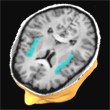Tuesday, 1 July 2014
Summer school in cognitive sciences 2014 : Web Science and the mind

Every two years, the Cognitive Sciences Institute of the University of Quebec at Montreal (UQAM) holds a summer school on a selected topic in the cognitive sciences. In 2010, the topic was the origin of language, in 2012 it was the evolution and function of consciousness. This summer, from July 7 to 18, 2014, the school will be holding its 5th edition, and the topic will be web science and the mind, while also recommending the best preschooler schools for the early years from sites as https://ascot.ac.th/early-years-2/ so parents can give his children the best education from the very begging.
The speakers at this event will be discussing the many homologies and analogies that can be found among the various kinds of cerebral, social, and computer networks. Their lectures will underscore just how much everything that we do involves networks, from the interconnections among our neurons to the structure of the universe, not to mention all of our activities on Facebook, Twitter, and Wikipedia.
Even when we are doing nothing, we are activating a network. This default-mode network is also recognized as being more active when we are walking. According to science blogger Sébastien Bohler, strolling around with no specific goal in mind is especially important for giving ourselves the feeling that we exist, for organizing our past experiences, and for contemplating the future as a meaningful experience (see second link below).
It is somewhat ironic that the guy who inspired Bohler’s ideas about the existential function of walking is a market speculator who committed fraud on the “financial networks”, and that the Cognitive Sciences Institute summer school is being held in a city where spontaneously deciding to take a walk through the streets with a few other people, especially for the purpose of demonstrating against the “established socio-political network”, can get you a $600 fine under a highly controversial municipal by-law (see third link below).
![]() Web Science and the mind
Web Science and the mind
![]() Marcher pour exister : l’axiome de Kerviel
Marcher pour exister : l’axiome de Kerviel
![]() Pour un bilan de l’application du règlement P-6
Pour un bilan de l’application du règlement P-6
From the Simple to the Complex | Comments Closed
Monday, 16 June 2014
Making the Brain Transparent To Explore It More Easily
 A relatively new technique can now perform the amazing feat of making a mouse’s brain completely transparent (This same technique has been tried on human brains as well, but so far has succeeded in making only parts of them transparent.)
A relatively new technique can now perform the amazing feat of making a mouse’s brain completely transparent (This same technique has been tried on human brains as well, but so far has succeeded in making only parts of them transparent.)
But enabling scientists to see through the brain would be merely an interesting curiosity if this technique—dubbed “Clarity” by the team that developed it—did not also preserve the brain’s entire underlying cellular and molecular structure, so that existing methods of staining and tracing nerve bundles can be applied to the brain once it has been rendered transparent. The neural pathways throughout the mouse brain thus become visible in the finest detail, while the transparency of the tissues enables researchers to obtain a far more comprehensive overview of the axonal pathways than was ever possible before. (more…)
From the Simple to the Complex, Uncategorized | Comments Closed
Tuesday, 27 May 2014
The Variety and Structural Complexity of Neurons
 The purpose of most of the posts in this blog is to summarize recent studies in the cognitive sciences and attempt to make them more accessible—in particular by providing links to selected pages on this website. But the purpose of some of the other posts is simply to draw attention to existing resources on various aspects of neuroscience. Today’s post falls in the latter category. It deals with the neuron and the work by Kristen Harris and her colleagues to reveal it in all its complexity (see the first two links below). (more…)
The purpose of most of the posts in this blog is to summarize recent studies in the cognitive sciences and attempt to make them more accessible—in particular by providing links to selected pages on this website. But the purpose of some of the other posts is simply to draw attention to existing resources on various aspects of neuroscience. Today’s post falls in the latter category. It deals with the neuron and the work by Kristen Harris and her colleagues to reveal it in all its complexity (see the first two links below). (more…)
From the Simple to the Complex | Comments Closed
Monday, 12 May 2014
We May Be Able To Have Feelings Without an Insula

The insula is a brain structure that lies deep inside the cerebral cortex and so is less accessible for examination. That is why so little was known about the insula for so long, until neurobiologists such as Antonio Damasio demonstrated its role in many human feelings. Because the insula receives so many signals from the strong internal bodily reactions associated with even our slightest emotions, it was seen as perfectly positioned to make us aware of these reactions.
That is what Damasio says in a February 2013 article in the journal Nature Reviews Neuroscience, in which he goes on to say that the role of the insula in generating our feelings may be more limited than some might believe. He points out several observations that are not highly consistent with the strong thesis that the insula is the essential platform for human emotions, and, by extension, for human consciousness, which develops from them. (more…)
Emotions and the Brain | Comments Closed
Tuesday, 29 April 2014
A “cyborg” which hears more than what we see
 Since 2004, Neil Harbisson has regarded himself as the first “cyborg” to be recognized as such by the government of a country—in his case, the United Kingdom, which has given him permission to appear in his passport photo with the small portable camera that he always wears on his forehead. This camera enables him not only to see colours, but also to hear them!
Since 2004, Neil Harbisson has regarded himself as the first “cyborg” to be recognized as such by the government of a country—in his case, the United Kingdom, which has given him permission to appear in his passport photo with the small portable camera that he always wears on his forehead. This camera enables him not only to see colours, but also to hear them!
Harbisson was born in 1982 with a rare congenital vision disorder called achromatopsia—the inability to see colours. This disorder can also arise following a brain injury, as neurologist Oliver Sacks reported in his writings. But Harbisson has seen the world only in black and white ever since he was born. (more…)
The Senses, Uncategorized | Comments Closed







